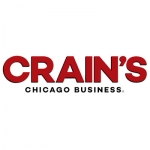 After acquiring the deed last month to the dilapidated former Washington Park National Bank building in Woodlawn, the Cook County Land Bank tonight will hold the first of three community meetings about the property to gather feedback on what it should become.
After acquiring the deed last month to the dilapidated former Washington Park National Bank building in Woodlawn, the Cook County Land Bank tonight will hold the first of three community meetings about the property to gather feedback on what it should become.